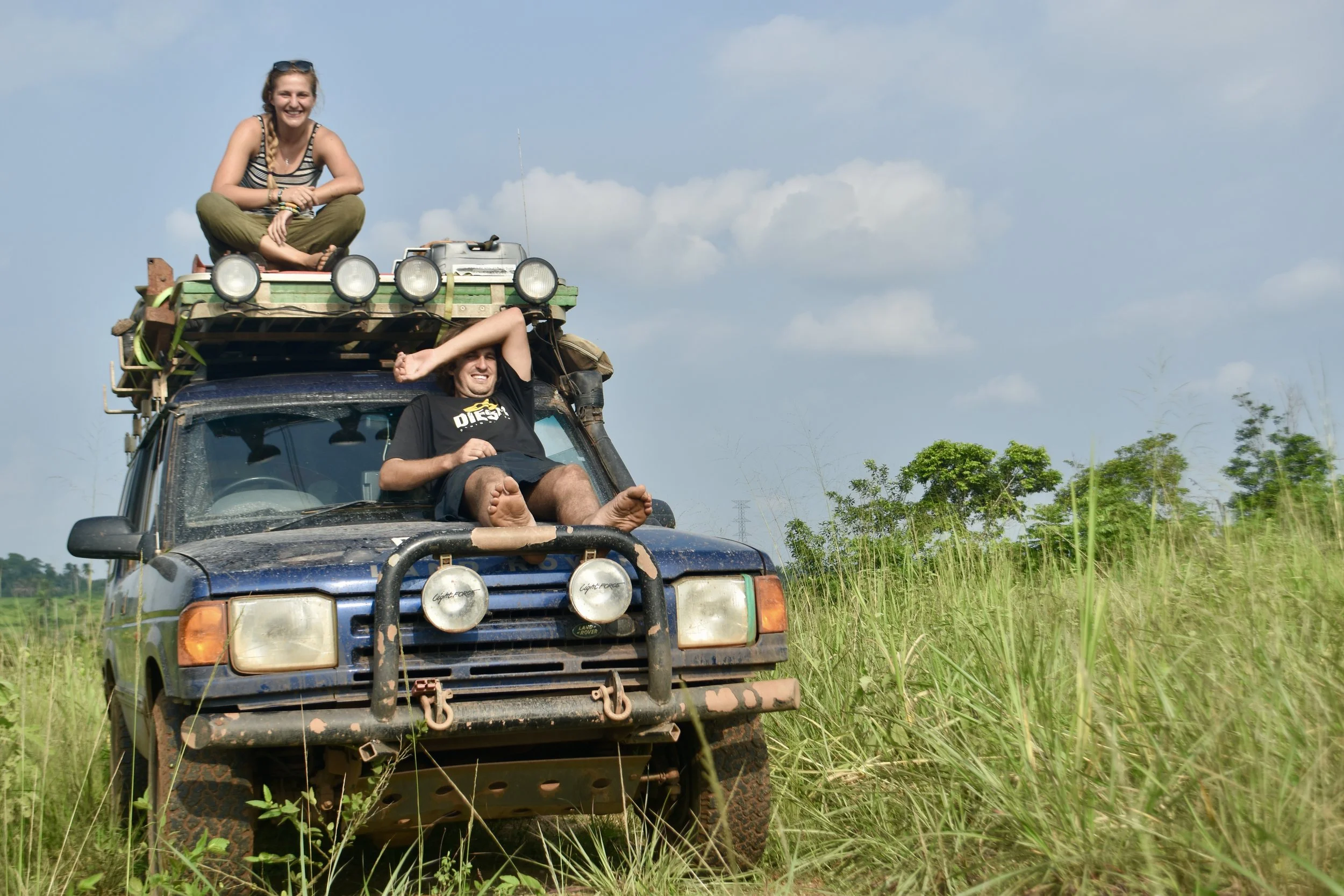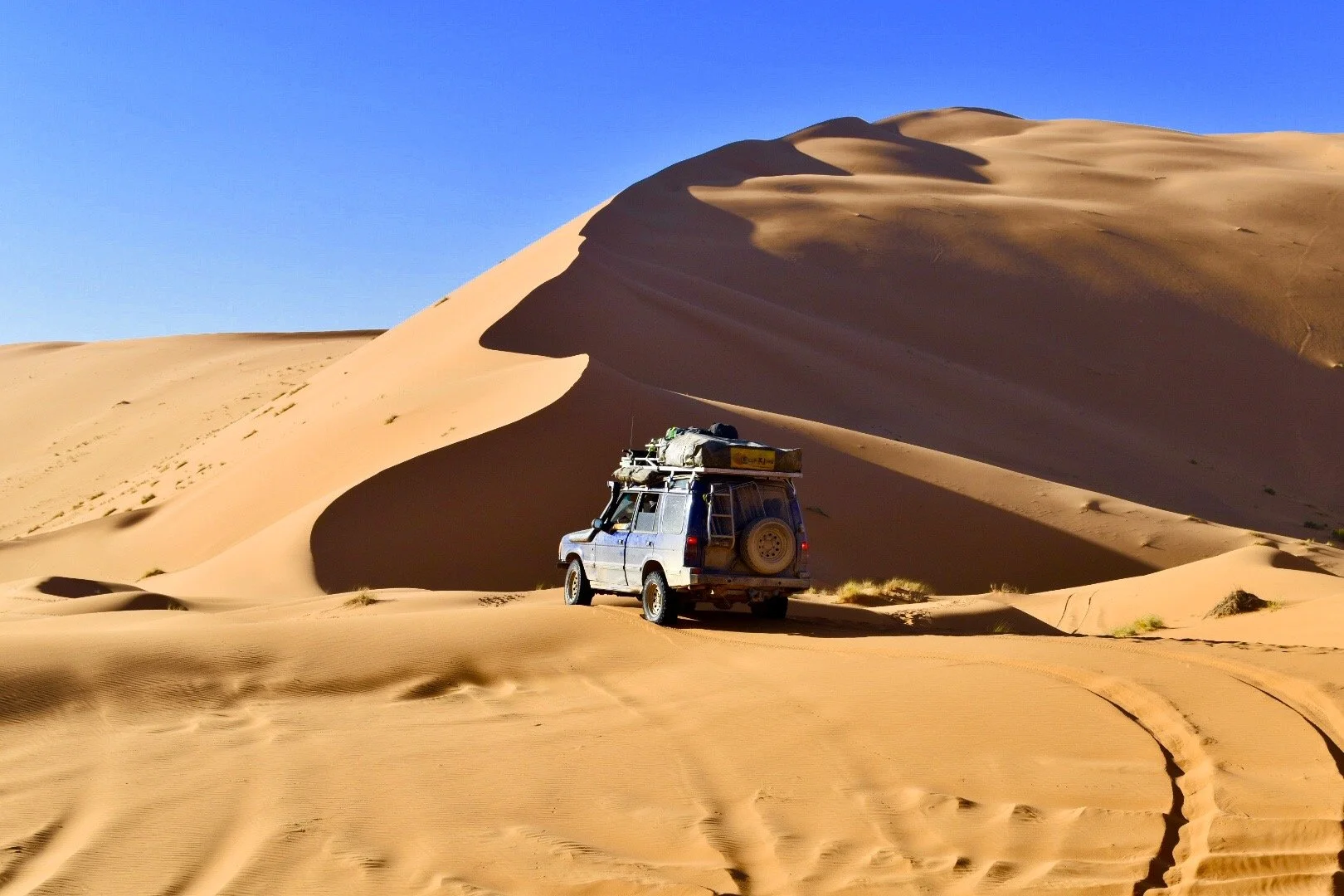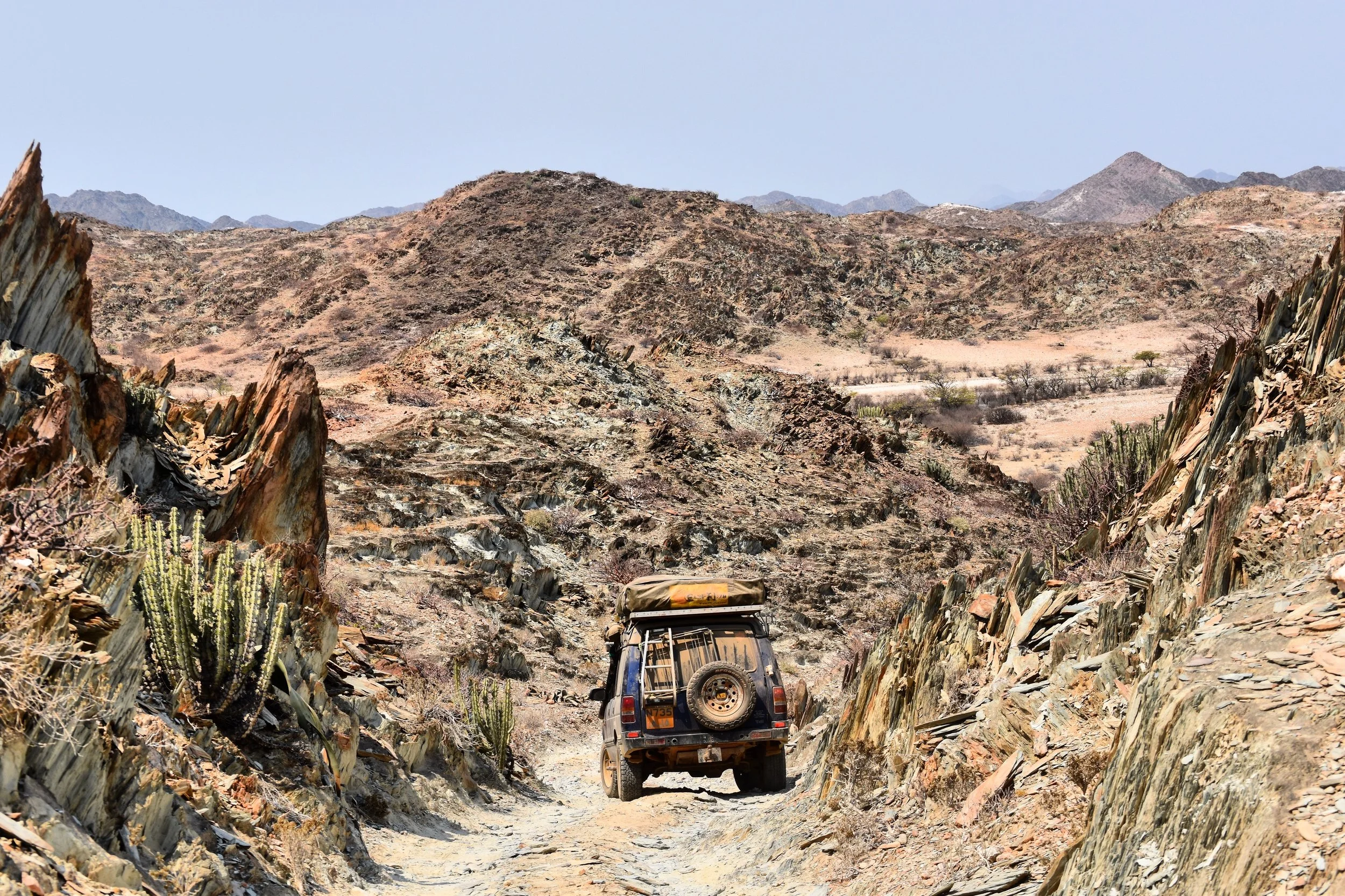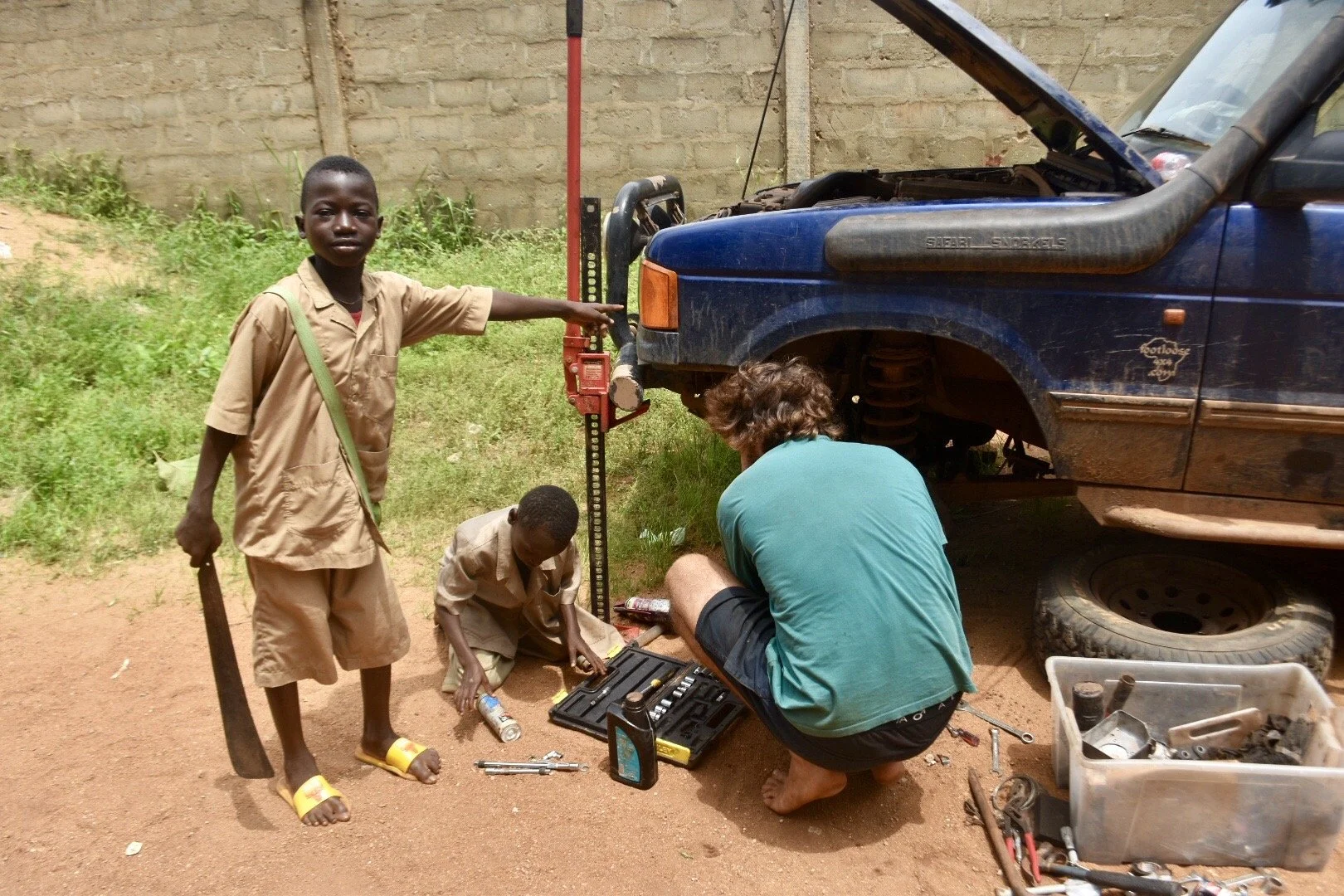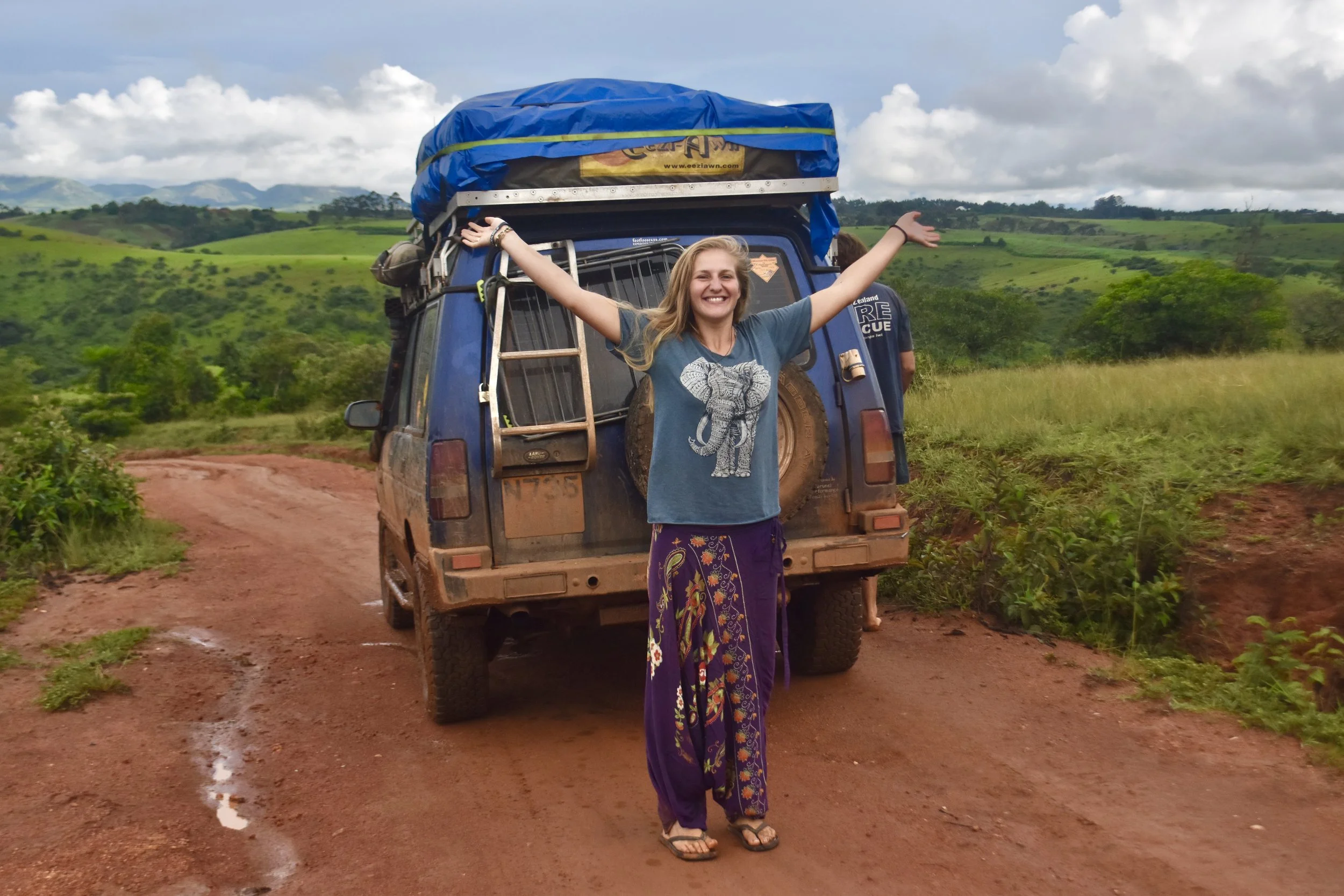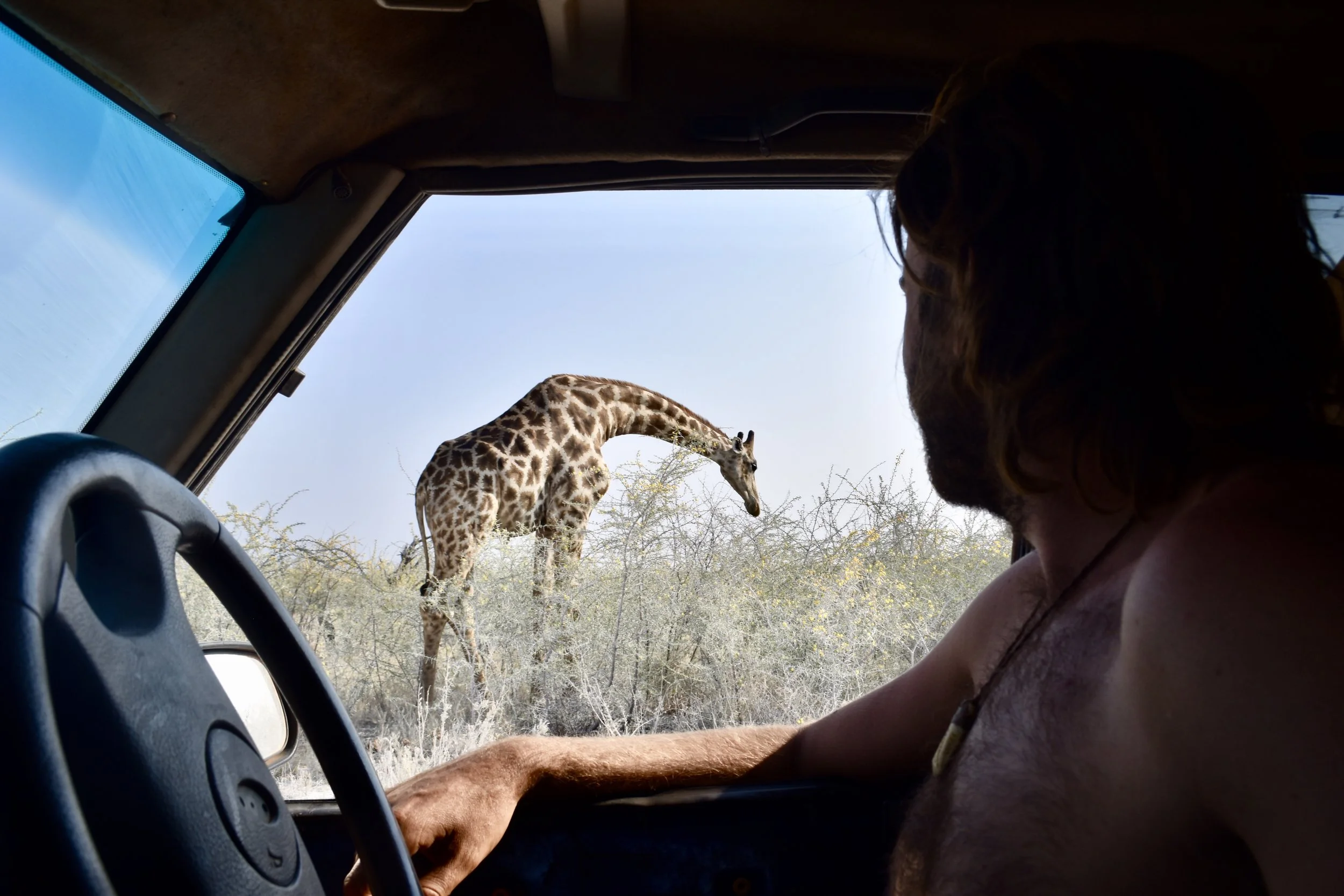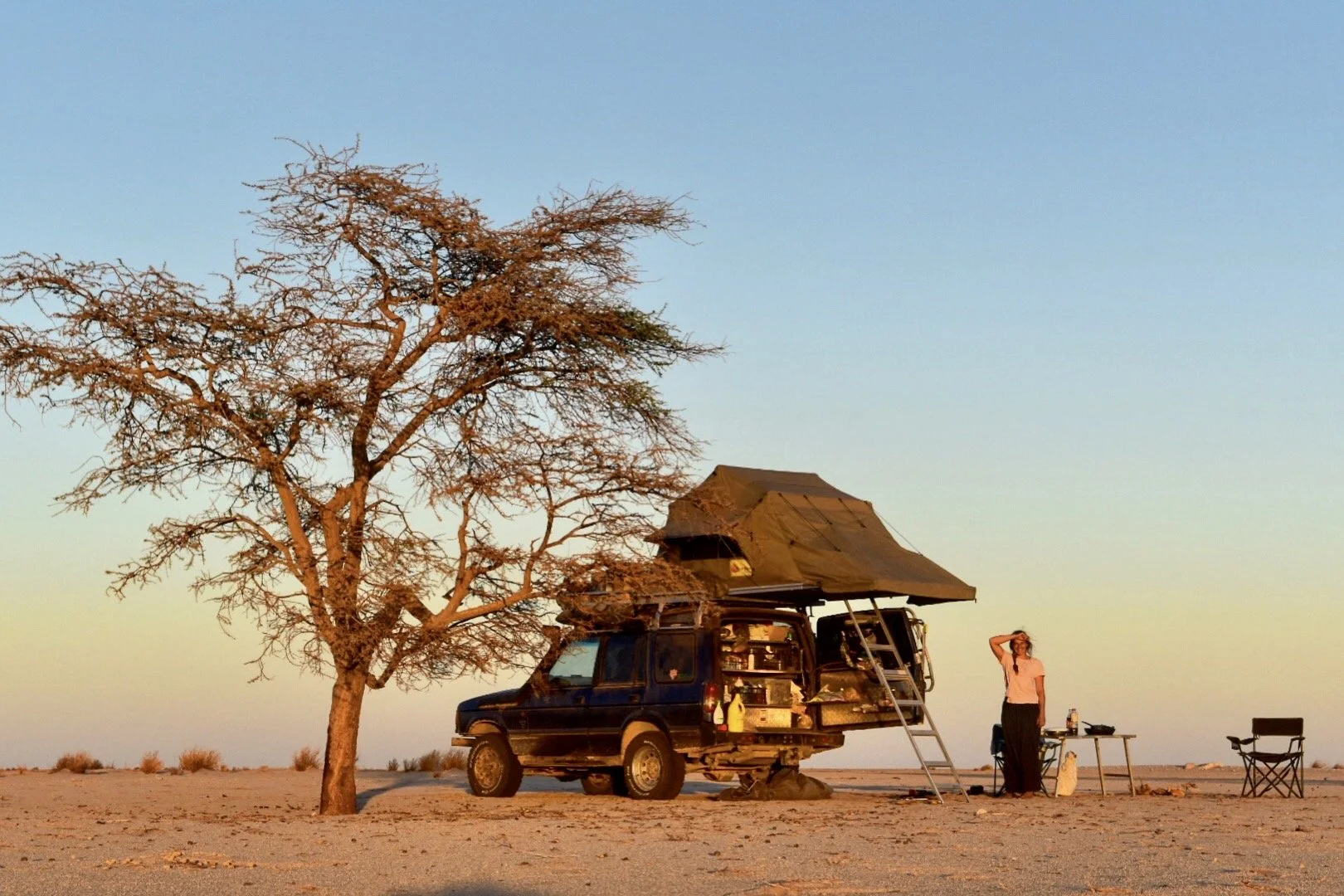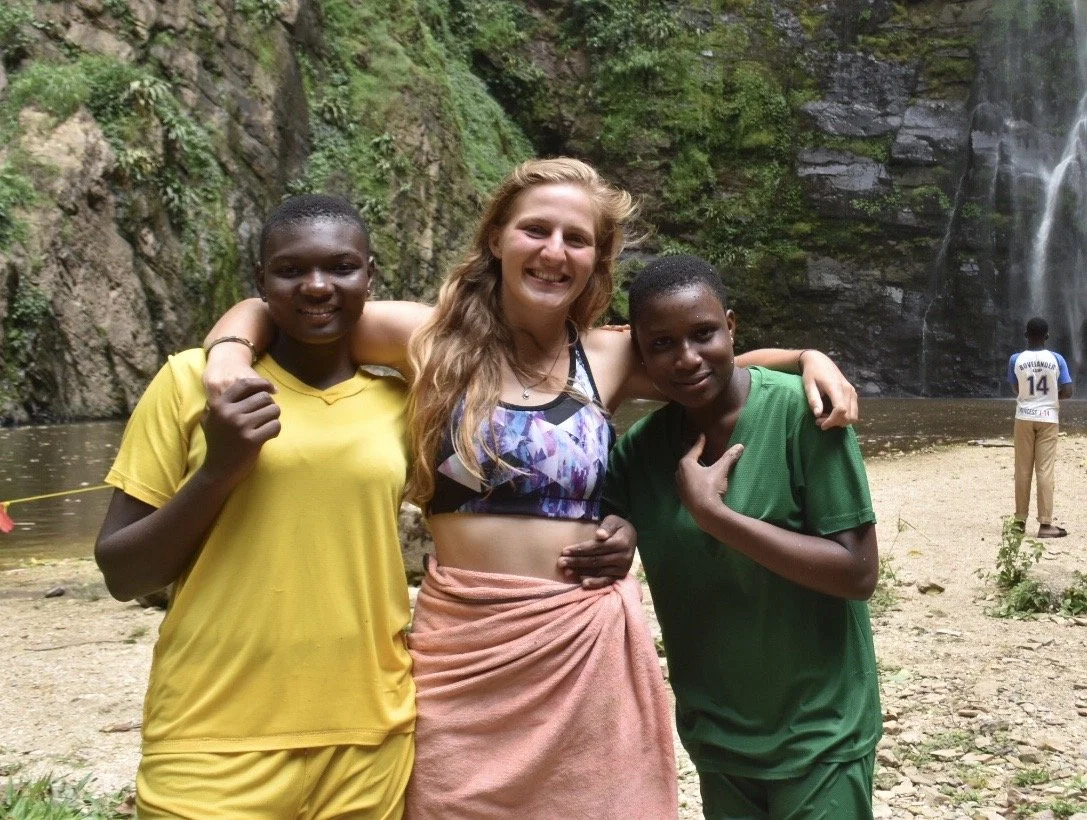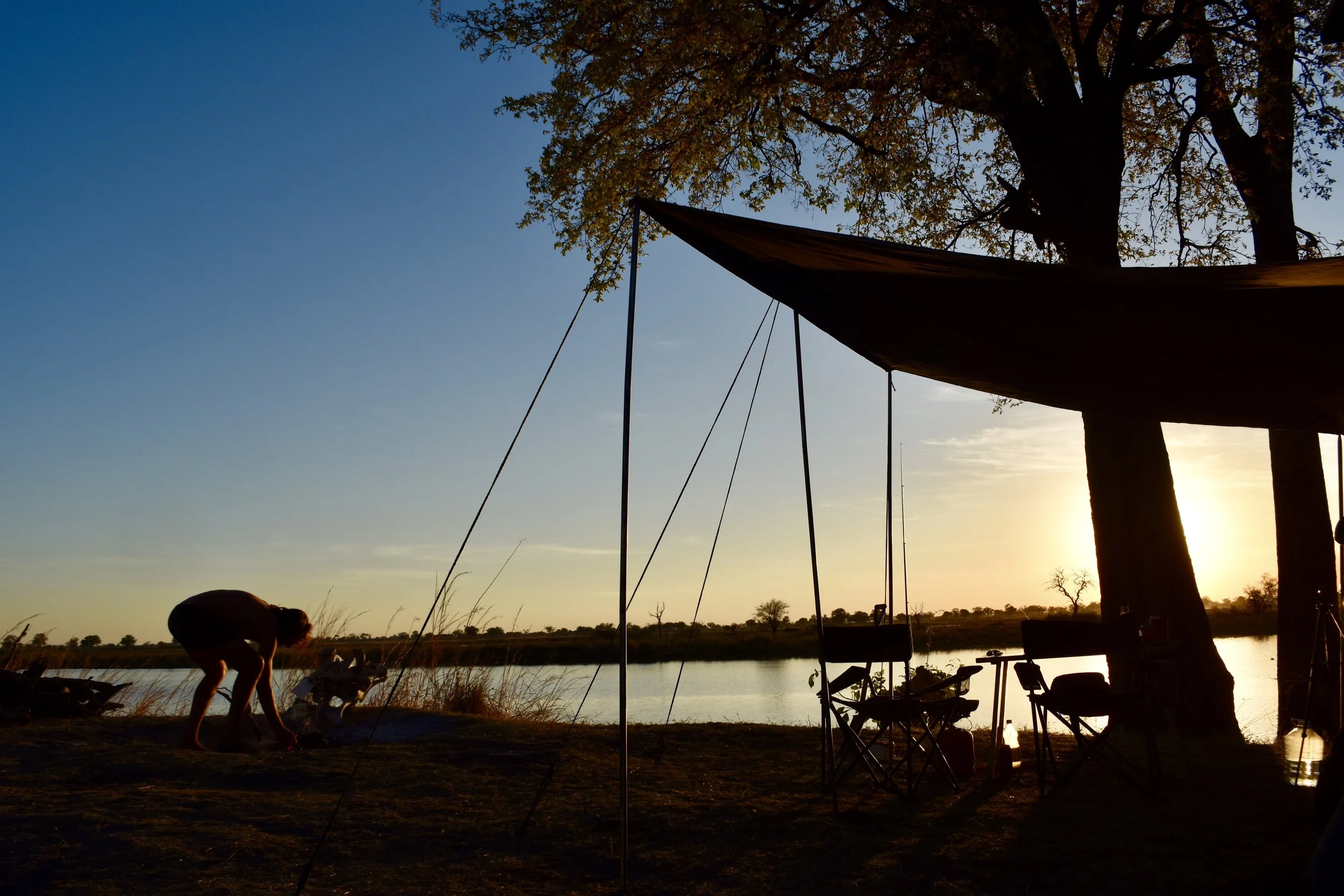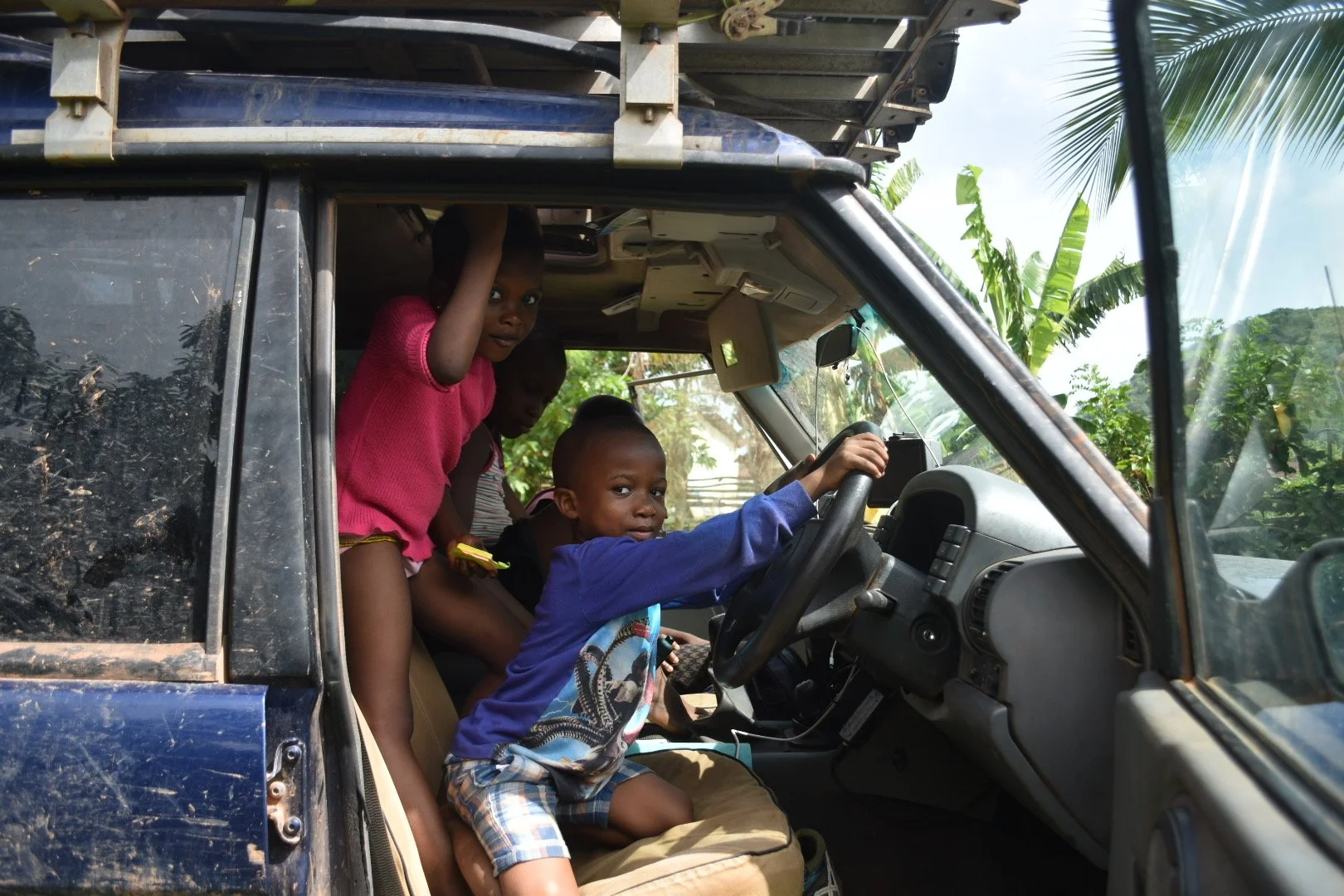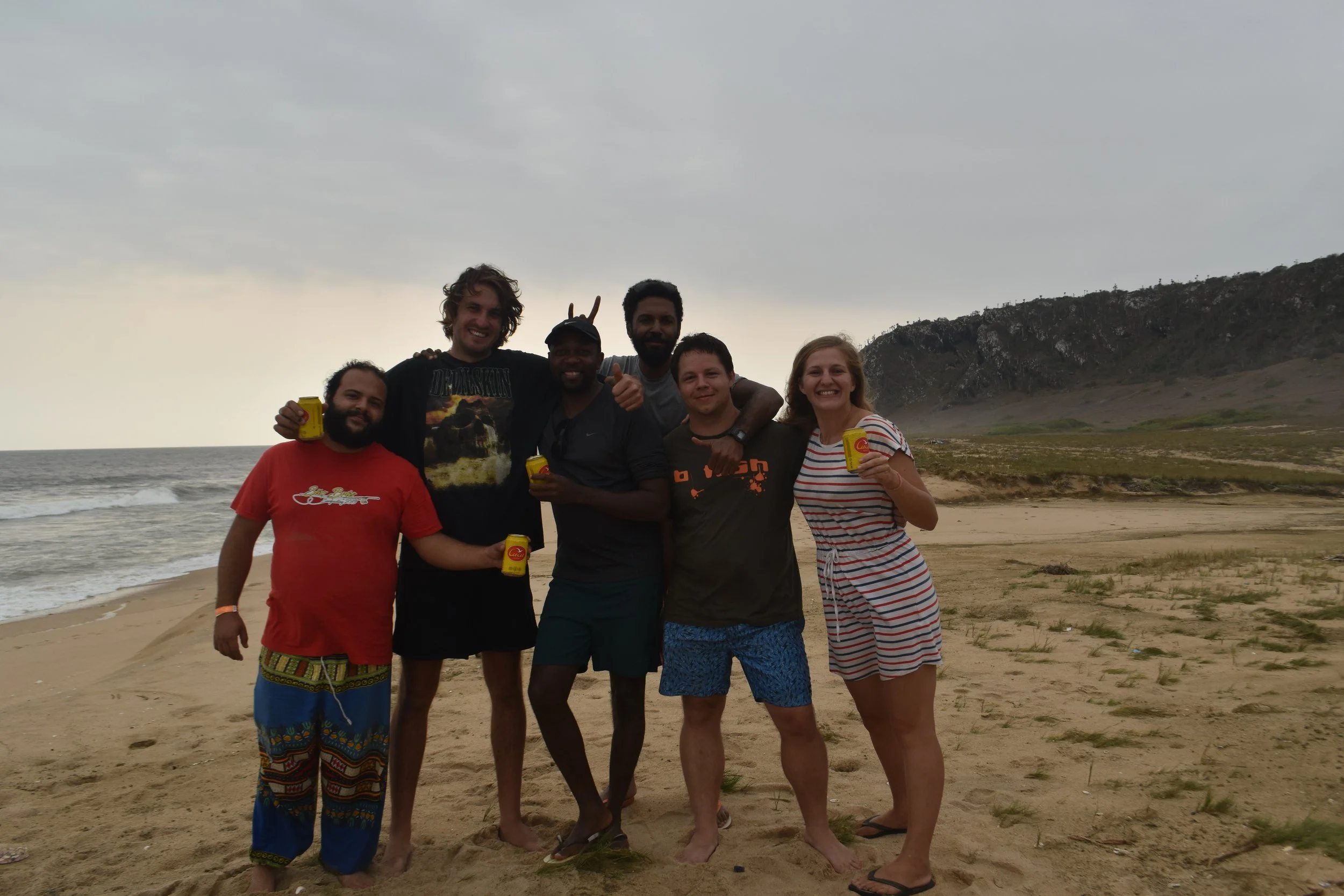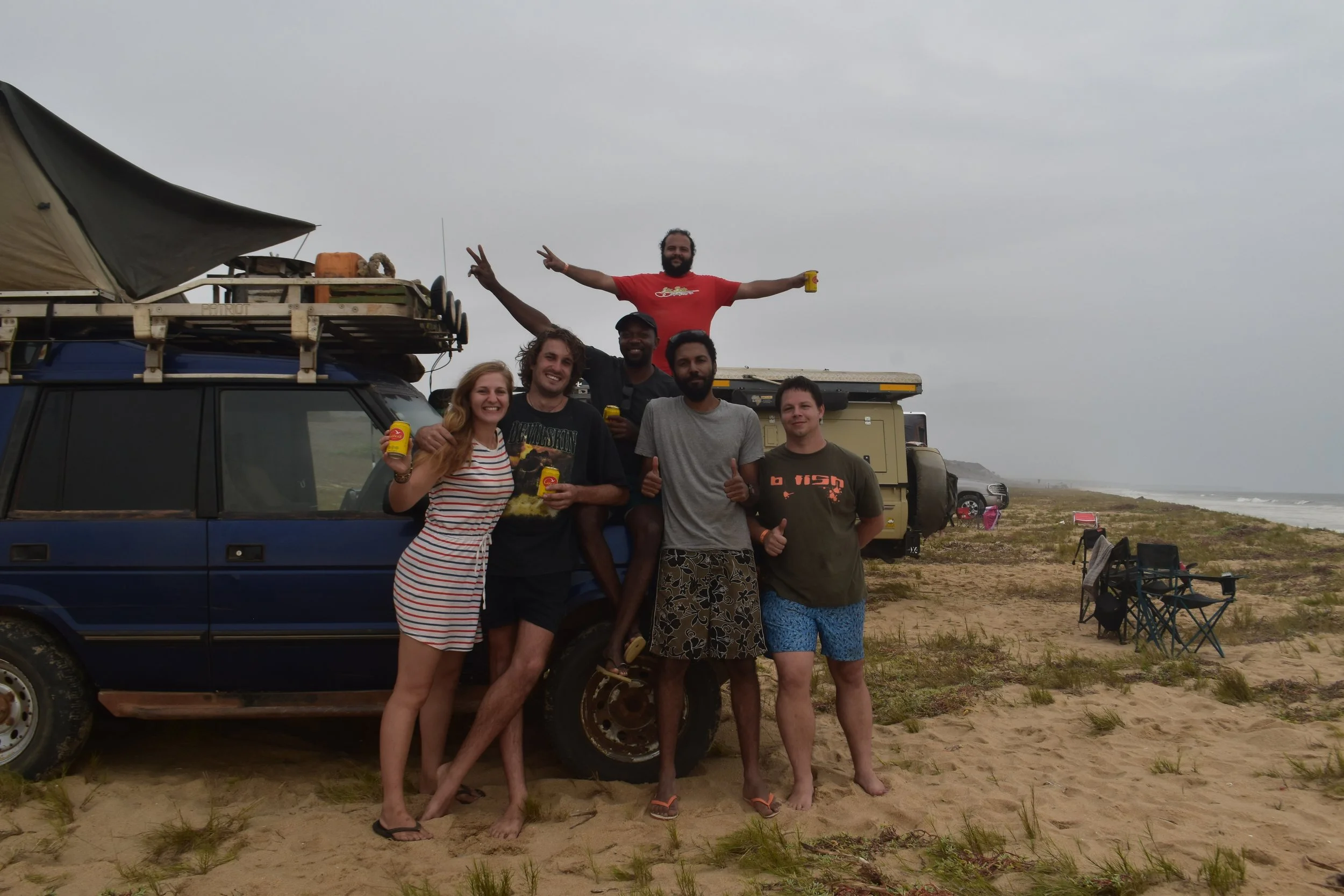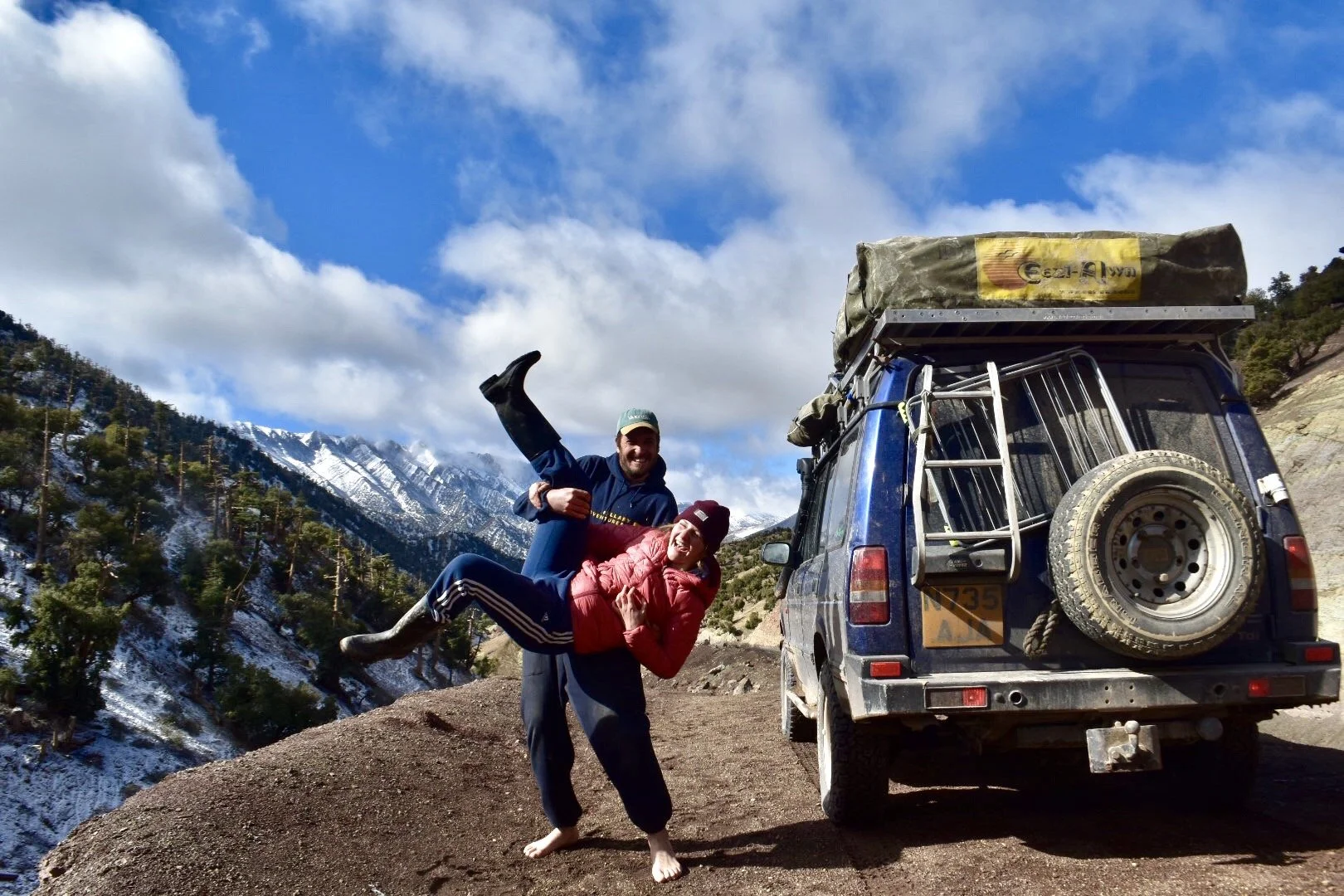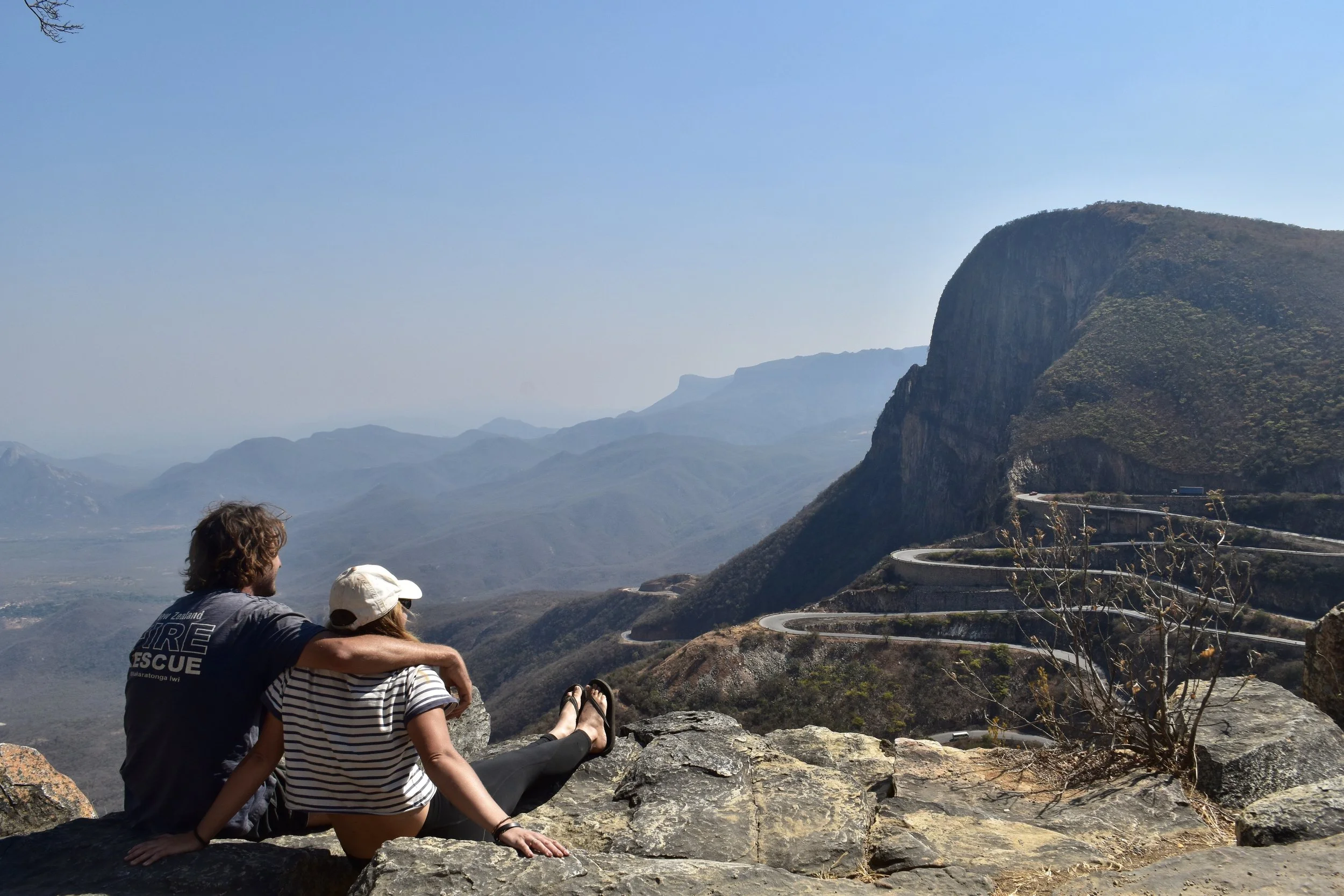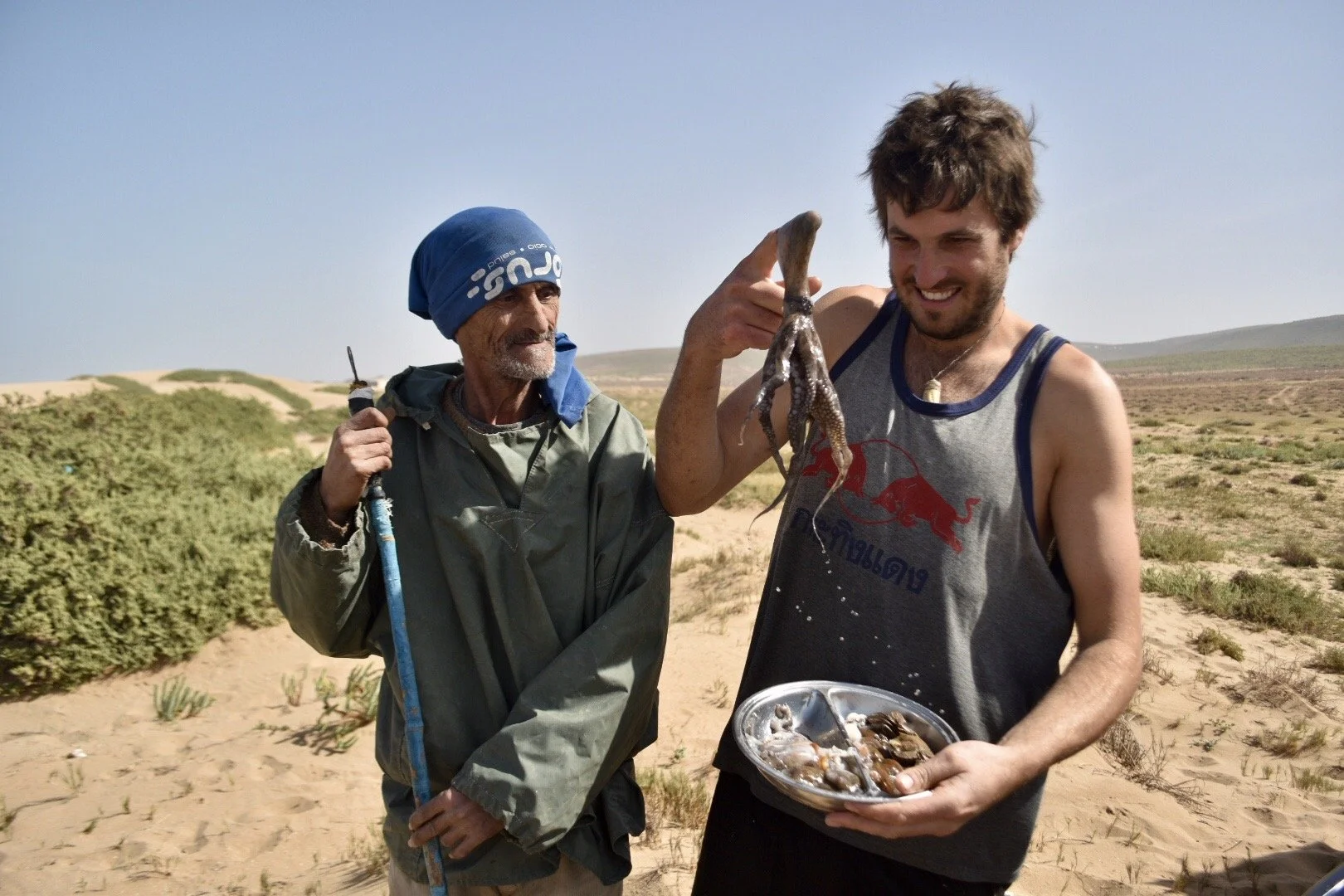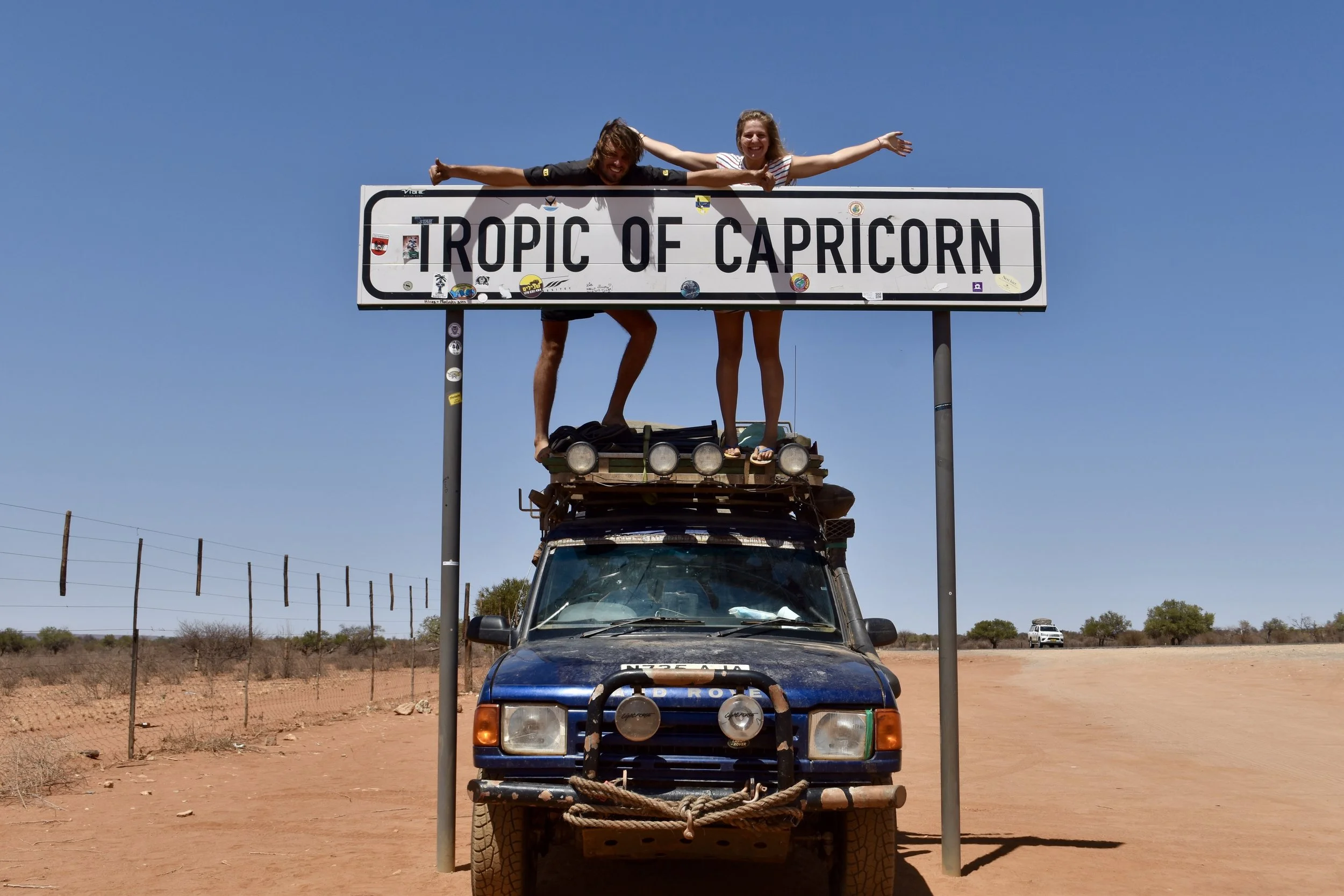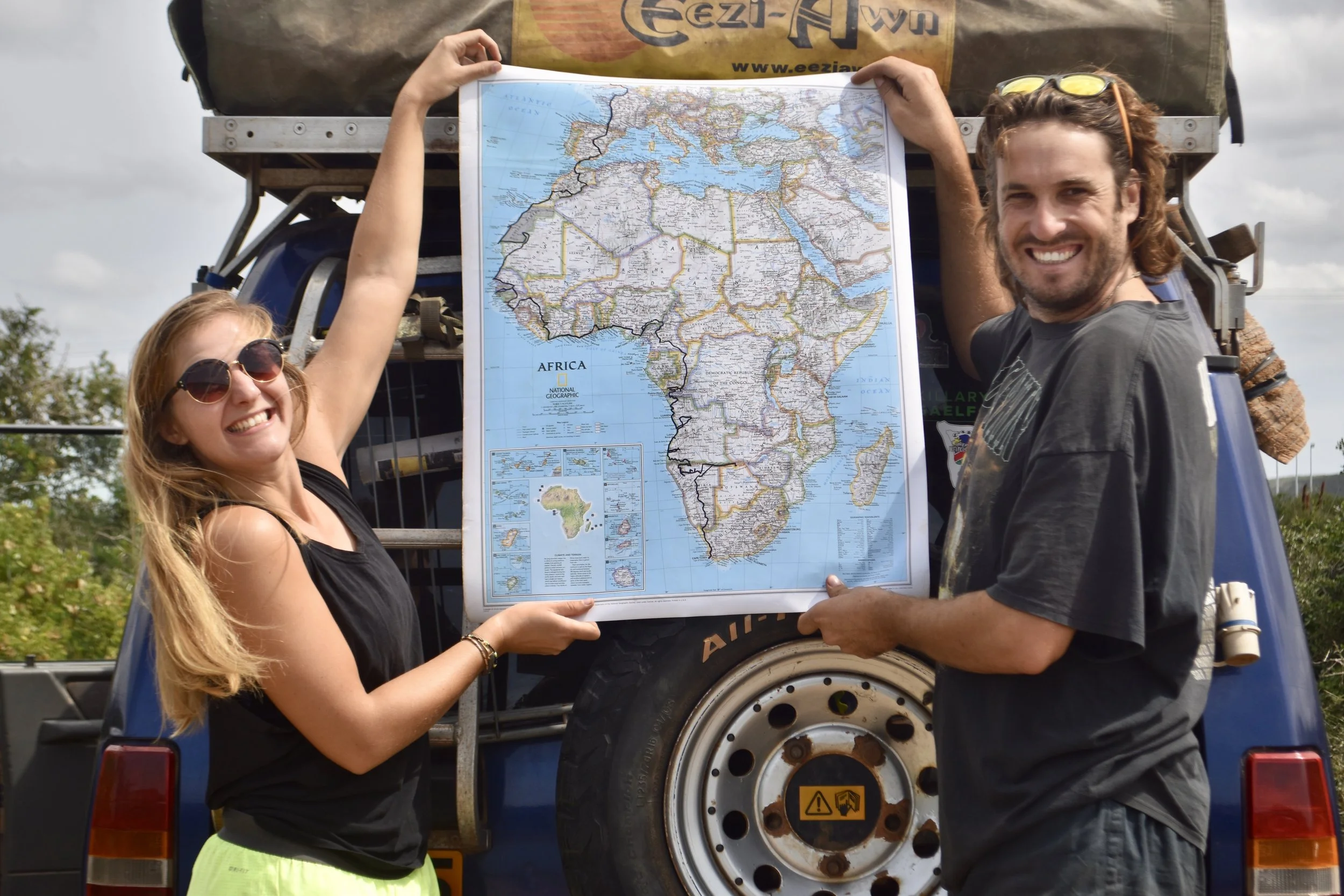40,000 kilometres of sand, safari and smiles: North to South in Africa
Polisario rebels in Mauritania chased them.
Then, in Nigeria, they charmed their way through 300 corrupt checkpoints.
Later, they were almost arrested in the Congo over a disagreement over tyre purchases.
Now, home in New Zealand, Kristin Hall says she and her partner Oscar Curry fight less over petty things. “We now know what a serious problem is and what isn’t worth spending our energy on,” she says with a grin…
Kristin is an award-winning investigative journalist from New Zealand. She’s married to Oscar.
Oscar is a flight instructor. He teaches people how to fly, but not Kristin. “I’m quite scared of heights,” she says. “So I’m not particularly interested in learning either.” He did buy her a lesson for her birthday, though.
They’ve been together for ages. Just last year, they had their first baby.
But back in 2019, they had Pumba. A Land Rover Discovery that would take them 40,000 kilometres from Ireland to Cape Town in South Africa.
The couple have always loved travelling overland. Rambo the Ambo, a converted St John’s ambulance, toured them across Aotearoa. Its sale funded their next trip to Europe, where, in the Isuzu Trooper, Monty, they navigated their way through the Eastern Bloc to Ireland.
The countries they knew the least about quickly became their favourites. “Everyone has their stories about their trip to Italy or France, so you have a certain amount of expectation when you go,” Kristin says. “We didn’t know anyone who had gone to Albania, and there wasn’t a whole lot of travel info out there about it.” Oscar says he didn’t even know Albania existed until they were driving through it.
But there it was, a stunning country with traditional villages perched high up in rocky mountains fed by spring water, sandy beaches you’d have all to yourself. A fascinating history of communism, and curious, friendly people.
“Ones who are very happy to feed you Raki at 10am, and so you’re sitting there going, shit, we’ve got places to go and see, but the hospitality was just so nice, although quite forceful,” Oscar shares with a laugh. “You end up spur of the moment, sucked into these awesome events.”
After parking up in Ireland to work for a year, they prepped for their next overland adventure - across the American continent.
But then, Oscar saw it was only a 40-minute ferry ride between Europe and Africa.
A few weeks later, the couple found themselves searching Mauritania’s Sahara Desert for Pelican 16, a South African Air Force plane that had crash-landed in 1994. Their Africa overland adventure had begun.
Wreckage found, the rebel group Polisario, which has controlled parts of Mauritania and Western Sahara, fighting for self-determination for half a century, were standing guard. Guns slung over slim shoulders, they were not impressed with the two foreigners showing up.
“They demanded that we follow them to sign some paperwork before we could view the plane,” Kristin says. But she knew something was off. Oscar slammed on the accelerator, and they gapped it out of there.
“There were a lot of times on this trip where you had to just go with the flow and tackle the hurdles as they came up,” Oscar says.
They were travelling in the midst of an Ebola outbreak. As the disease crossed borders from the Congo to Rwanda, Africa’s Northeast countries were closing their borders.
Angola was the only country with its borders still open to the Congo. “We had to get there as hard and fast as we possibly could in case they also closed their borders,” Oscar says.
“So, if you picture some of the thickest, densest jungles in a country where most people don’t have cars and they walk everywhere, well, that’s where we were driving,” he continues. It was the middle of the night, and they were bulldozing their way through. On what tracks there were - gravel military made, Pumba would get stuck and bog down. Then the tyres would pop.
“We’d jump out, jack up, winch out, change tyres, all of this in pitch black with no connection to the outside world and no idea what’s actually waiting for us at the border when we get there,” he says.
Most roads of Central Africa were horrendous, slicing their tyres constantly. As they drove through the Namib Desert, heading from Angola to Namibia, it cost them five tyres. “We were getting absolutely chewed. But that was our biggest worry. Everything else that happened was workable. You’d use a bit of Kiwi ingenuity to rectify the problem and keep Pumba limping along,” Oscar says.
It was 100km to the nearest town when their truck broke down, needing a new fan belt. While Kristin played with some kids from the five-hut village, Oscar hitchhiked off to find the spare parts.
Getting back proved more difficult. “If I ever saw another Westerner, they’d be in a Four Wheel Drive, heading the other way,” he says. “I’d be waving, gesturing for water as I was absolutely parched and had none. But they’d make eye contact with you, and must’ve just thought, ‘who the fuck is this weird as white dude walking in the middle of the Caprivi Strip.” They just looked the other way and roared on past.
As dusk draped itself over the swampy plain, yaps of wild dogs and screaming birds of prey echoed across the landscape. The sparsely human-populated Strip is home to lions, leopards and herds of antelope. But just as Oscar found himself walking in pitch darkness, a raucous of excited voices hurtled down the road towards him.
It was a ute spilling out a young soccer team who were heading home from the local Shebeen after celebrating their win. “Without thinking, stupidly, I climbed into the back of this overloaded ute. People hanging off the side, laughing, joking, having fun. Travelling at a million miles an hour, swerving all over the place. I honestly thought I was gonna die,” Oscar says.
Kristin, meanwhile, had made herself dinner. She’d created some art with the local kids. Then hopped into Pumba to try to rest.
“I had freaked out,” she says. “I mean, I had multiple freakouts like that, but I just had to sit and wait and hope that he hadn’t died. It was all that I could do. And he’d always come back.”
This time, Oscar pulled up about 18 hours after he’d left, around 3am. “On some days, you’d be just battling, battling, battling, not having fun at all,” he says.
But then, the next day, they would wake up and find themselves in paradise. A herd of elephants ambling by. Monkeys swinging from the trees surrounding their truck. People who shared food, drinks, and stories.
“You’d go from these massive struggles, so much frustration, and then literally, at the snap of your fingers, you’d be back on cloud nine having this experience,” Oscar says. “You’re like, alright, recharge the batteries, let’s go. This is why we’re doing this, because it’s awesome.”
The overland journey became their “personal Everest.”
“There were points where I was really, really struggling, especially with the scary stuff that happened, but I just couldn’t bring myself to quit and go home,” Kristin says. “I really, really wanted to finish it. At basically any cost, which sounds kinda crazy. But yeah, stubbornness will get you a long way.”
When the couple had originally told friends, family, and acquaintances, they were going to Africa, the common response was fear.
"People said, Oh my god, Africa. You’re gonna get murdered, kidnapped,” Kristin tells. “And certainly, we had some very terrifying experiences with officials, whether they were police, military or whatever. And I’m sure there are very complex reasons why people in those positions behave that way. Maybe not being paid properly by their bosses, or they’ve learned that corruption is the only way to get ahead.”
But, she says, the people they met on a day-to-day basis in these countries, labelled as incredibly dangerous, were friendly, welcoming, human, funny, and good.
“This trip taught me most people are good,” she continues.
They passed through villages, an assortment of grass huts clustered together, lacking a constant source of electricity. Water had to be collected and carried from a nearby well or stream. “These people live in what we would perceive as poverty,” Oscar says. “But these people living the simplest lives seem to be the happiest.”
“You can also definitely see why all the men are just ripped, with eight packs,” Kristin says. “They’re doing crazy manual labour. They don’t have the distractions like we do - TV, social media,” Oscar adds in.
He’d had this idea of Africa, that it would be quite similar no matter where you stood. But reality was quite different.
In North Africa, they met a majority Muslim population with Arabic influence. Kristin loved Benin, where they visited a floating village in the middle of the lake and went to a voodoo market. In Togo, they spent two weeks living by the beach and hanging out with a local family. Angola showed them a mix of Portuguese and African culture. “Two different races of people, from what we experienced, seemed to get along,” she says. “Whereas in South Africa, everyone still seemed scared of each other and on edge.”
Oscar said in Angola, they met people the same age who remembered its civil war, which began in 1975 and continued in interludes until 2002. “They either fought in the war or their parents did,” he says. “But it was a cohesive culture where everybody’s accepted and welcoming, eating together, marrying whoever.”
There was magic in having no expectations of a place and just seeing what unfolded.
They were a team. Each with their own role. Oscar was the driver and maintenance man. Kristin was the creative, writing, making videos and freelancing along the way to bring some money in. “The trip couldn’t work without either one of us,” Kristin says. “You got quite in tune with where the other person was at and when it was a good time to fool around or was a good time to back off and fucking run for the hills,” Oscar adds.
Travelling through countries where nobody spoke their language, they had to rely on each other.
“It wasn’t until we’d done this massive trip and then came home that our perspective opened up a lot,” Oscar said. The Western mindset follows a pattern. It’s school, further education, work, work, work, work, save up your nest egg, retire, die, he continues.
But in Africa, they saw men fishing in the morning, and once that day’s dinner was in hand, they’d play soccer or sit around playing board games. Women would be drinking tea, or giggling, chattering, gossiping away as they washed laundry, waist-deep in the river. “We saw how little people live on, it’s a very, very, very simple existence compared to the extreme luxuries we have,” Kristin says.
We put our clothes in washing machines and press, ‘go’. We have supermarkets stocked full of every ingredient we could wish for. In other places, they rely on nature right outside their homes to provide. When Kristin joined a group of women to wash their clothes, she says she got absolutely schooled. “They were laughing at me because I was so bad at it,” she explains.
“There are many different ways to actually end up living your life,” Oscar says. “They were just enjoying life. A life so much more wholesome and happy than the West it seemed.”
Kristin says community was the foundation of people’s lives in Africa. “I think in the Western world, we’ve lost a lot of that,” she says. “People don’t know who their neighbours are. Whereas the whole village is in it together.”
“The village wouldn’t exist if everybody just cared for themselves,” Oscar adds.
It’s easy to get caught up in the hustle and bustle of our daily lives, the go, go go, Oscar explains. “But I saw another way, to slow down and just enjoy the moment, or the time, or the position you’re in for what it is, not for the next thing you can get or buy or accomplish.”
Since their journey’s end, Pumba had been sitting with an old friend’s family in Port Elizabeth, on a pineapple farm. But they’ve been hustling to reunite one day, and he’s now waiting at a truck yard in Cape Town. The couple are looking to move to Australia next year. They like the idea of Pumba in Perth adventures. Watch this space.
“It’ll be great to have him back, even though he’s stinky and broken and maybe won’t legally be able to drive on the roads,” Kristin says.
Oscar adds: “When I’m 70 and washed out with arthritis, retelling boring shit ass stories to whoever that’s still listening to me, I want to be able to point to Pumba and be like, see that? That drove me around Europe and down Africa.”
